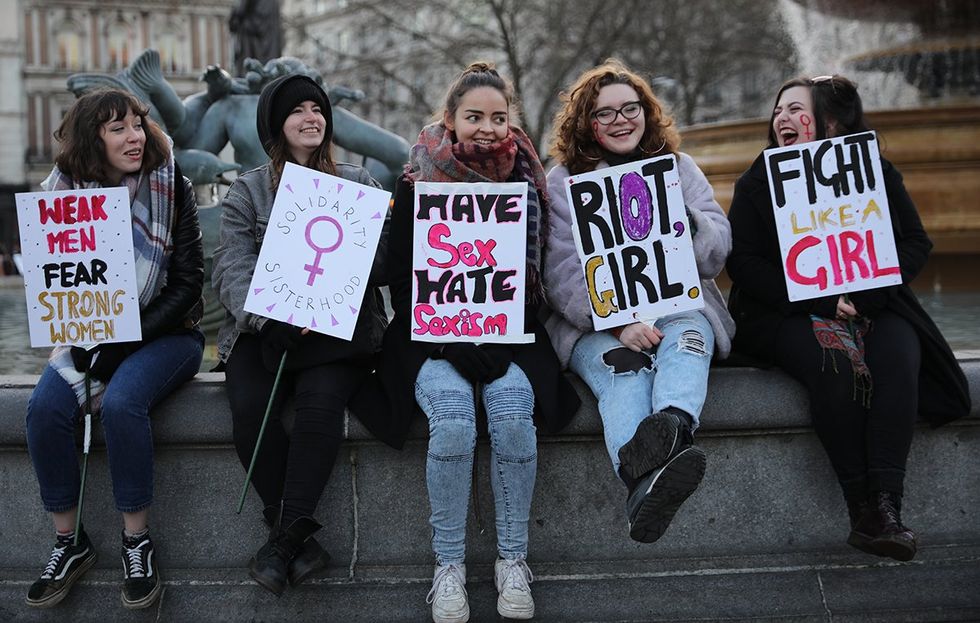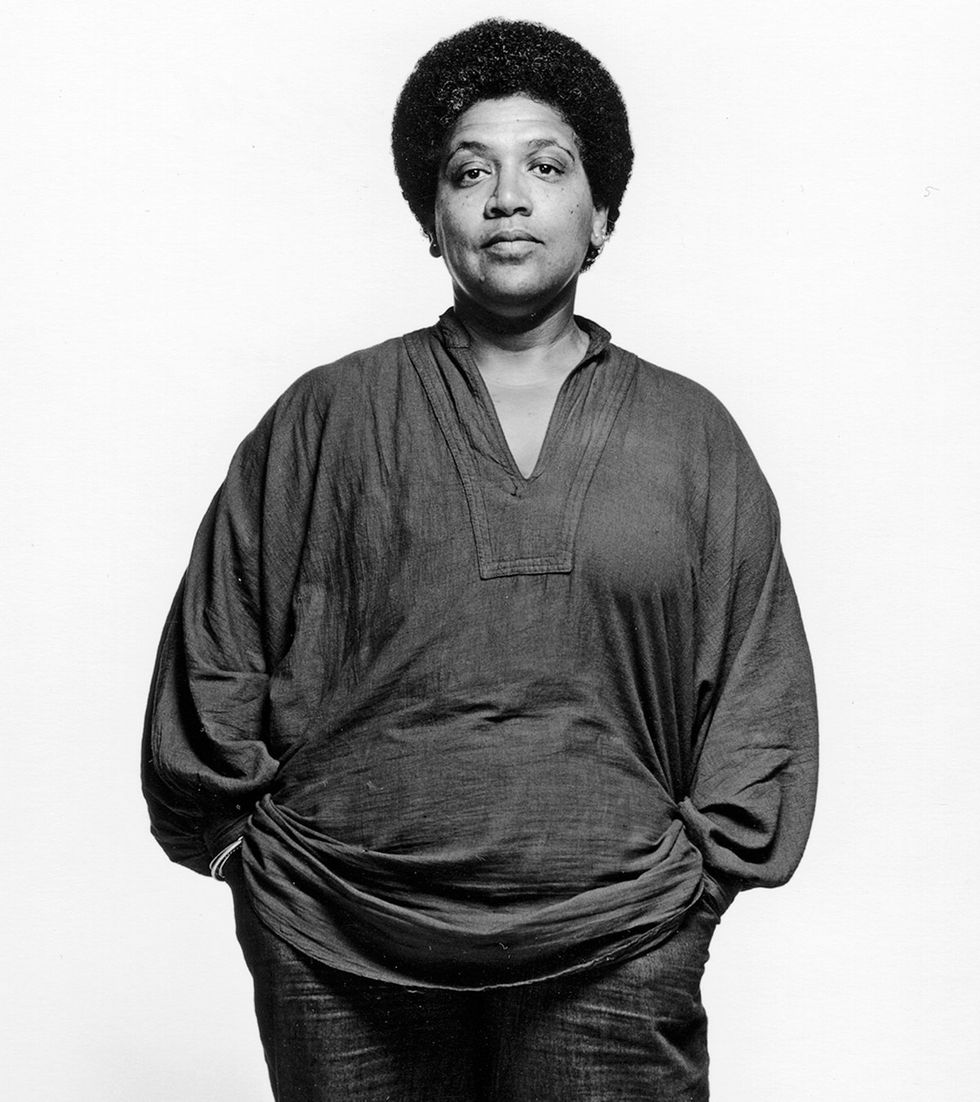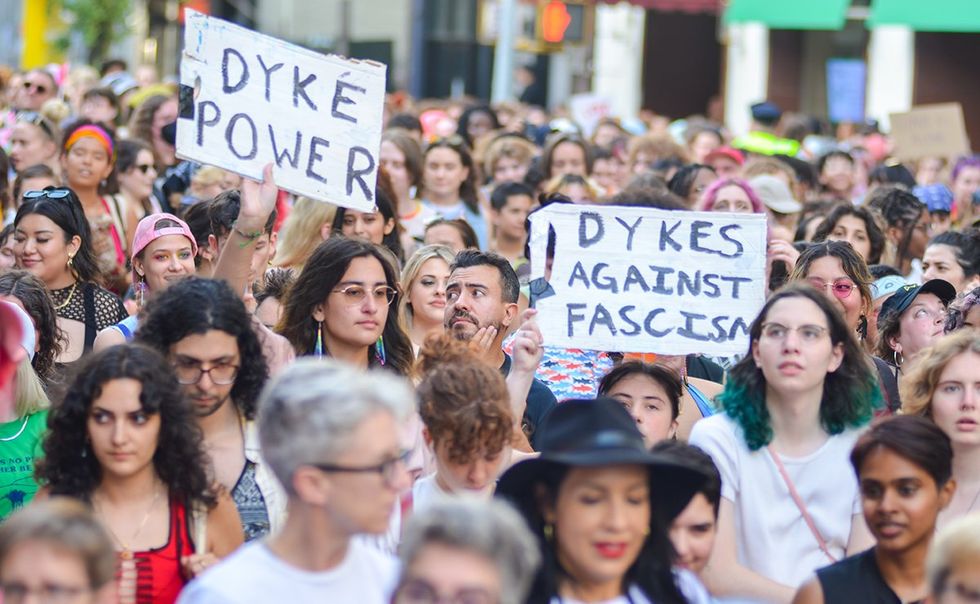It is rather tiresome to live in straight culture as a homosexual.
Keep up with the latest in LGBTQ+ news and politics. Sign up for The Advocate's email newsletter.
The post-election uptick of American women’s interest in the South Korean 4B movement was as unsurprising as Vice President Kamala Harris’s loss. (Voting equality is a fallacy; no woman, and especially no liberal Black South Asian woman, is going to be elected to the presidency as long as the electoral college exists.) Women’s frustrations with men, and vice versa, symbolize what UC Santa Barbara professor Jane Ward described as both of paradox and the tragedy of heterosexuality in her book The Tragedy of Heterosexuality. If men and women don’t like each other, how are they expected to love each other?
But my initial feelings of bemusement—straight women, adorable!—quickly turned to befuddlement. The South Korean movement’s four 4Bs refer to bihan (no marriage), bichulsan (no childbirth), biyeonae (no dating), and bisekseu (no sex). Sliding my lesbian spectacles down my nose like Miranda Priestly, I thought, No sex with men? Groundbreaking.
“Yes, no … and what else?” my mentor Barbara Johnson said. In all the flurry of saying yes and/or no to men, there has not been a serious consideration of the “what else?” of lesbianism.
Sex, dating, marriage, and children can all happen between women.
The irony of 4B is that it doesn’t even scissor out the patriarchy because its logic continues to center it—it continues to center what I call “the man in the mirror”: The trappings of the gender binary, I wrote in Breaking Free, have conditioned women to “perceive our own personhood not as independent from men but wholly realized through them. That is, the ideal image of who we should aspire to become is not simply that of man but of how man has imagined woman.”
 Dan Kitwood/Getty Images
Dan Kitwood/Getty Images
Here, self-creation consists solely through negative construction, through a series of no’s in relation to men. Wellesley College professor Katharine Moon contended that the reactionary motives behind American women’s interest in the Korean 4B movement suggest that the movement will not become popular stateside: “It’s a temporary means to bring attention to the precarious situation of women, with Trump and his ascending to power,” she said in an interview with The New York Times. “So it’s not really about a total commitment to a way of life without men. Whereas in South Korea, it is a way of life.”
Even so, the movement seems like a hetero version of lesbian separatism minus the lesbianning. As a 24-year-old Korean woman recently told The Cut: “I don’t need to try being a lesbian, because in political lesbianism, I can just be a person, like a normal person—a human being. I can be in a safe place,” she said, indicating that a “safe place” is one without men.
This form of political lesbianism was similarly espoused by lesbian feminists like Charlotte Bunch, Adrienne Rich, and Audre Lorde. “Being a Lesbian means ending your identification with, allegiance to, dependence on, and support of heterosexuality,” Bunch wrote in “Lesbians In Revolt.” “It means ending your personal stake in the male world so that you join women, individually and collectively, in the struggle to end your oppression.”
For Lorde, “the true feminist deals out of a lesbian consciousness whether or not she ever sleeps with women.”
 Jack Mitchell/Getty Images
Jack Mitchell/Getty Images
Becoming a lesbian demands a recalibration of the mindset to decenter the patriarchy, which demands dismantling the gender binary—not reinforcing it.
Designing one’s life—acts of self-creation, from whom one chooses to (consensually) fuck and to whom one chooses to build community with—is comprised of freedom practices representing our agency and bodily autonomy. And in my book, I advocate for scissoring out the patriarchy but doing so without relying on the antiquated gender binary. Indeed, the criticisms of the movement have coalesced around issues of exclusion—of trans people, of genderqueer people, of women with children.
4B is a reaction to misogynistic culture, created from a place of powerlessness in an effort to exact some power in the world. And while self-creation is crucial to our human dignity and authenticity, the fact is that our self-creation is always mutual co-creation with other people in the world—most intimately, the people we choose to build and be in community with, which gives meaning to our lives. We need community for care, and for solace in times of crisis. However, it smacks of a kind of naïve TERF libertarianism not only to believe that it is possible to live in a segregated silo with a select group of (cisgender, child-free) women but to actively seek it.
We live in a world—and, indeed, an American society—with people of countless genders, and many of those people are men. What I find funny is that I have chosen a lesbian lifestyle—women are the North Star of my desires and the heart of my world-building—so that I don’t need to exclude men. I love men and, often, I prefer the company of men. But they are not the center of my life. These things are not mutually exclusive.
 Ryan Rahman/Shutterstock
Ryan Rahman/Shutterstock
Scissoring out the patriarchy does not mean scissoring out men, but it does mean eradicating misogynistic elements of heterosexual culture that demand women’s oppression. This work does not have a quick or easy solution; it is not solved by a law or by technology. Rather it demands we all adopt a kind of lesbian consciousness that values the human dignity of each other, no matter our gender or sexuality.
Marcie Bianco, PhD, is a writer, editor, and cultural critic. She is the author of Breaking Free: The Lie of Equality and the Feminist Fight for Freedom.
Voices is dedicated to featuring a wide range of inspiring personal stories and impactful opinions from the LGBTQ+ community and its allies. Visit Advocate.com/submit to learn more about submission guidelines. Views expressed in Voices stories are those of the guest writers, columnists, and editors, and do not directly represent the views of The Advocate or our parent company, equalpride.


 Dan Kitwood/Getty Images
Dan Kitwood/Getty Images Jack Mitchell/Getty Images
Jack Mitchell/Getty Images Ryan Rahman/Shutterstock
Ryan Rahman/Shutterstock

































































Charlie Kirk DID say stoning gay people was the 'perfect law' — and these other heinous quotes